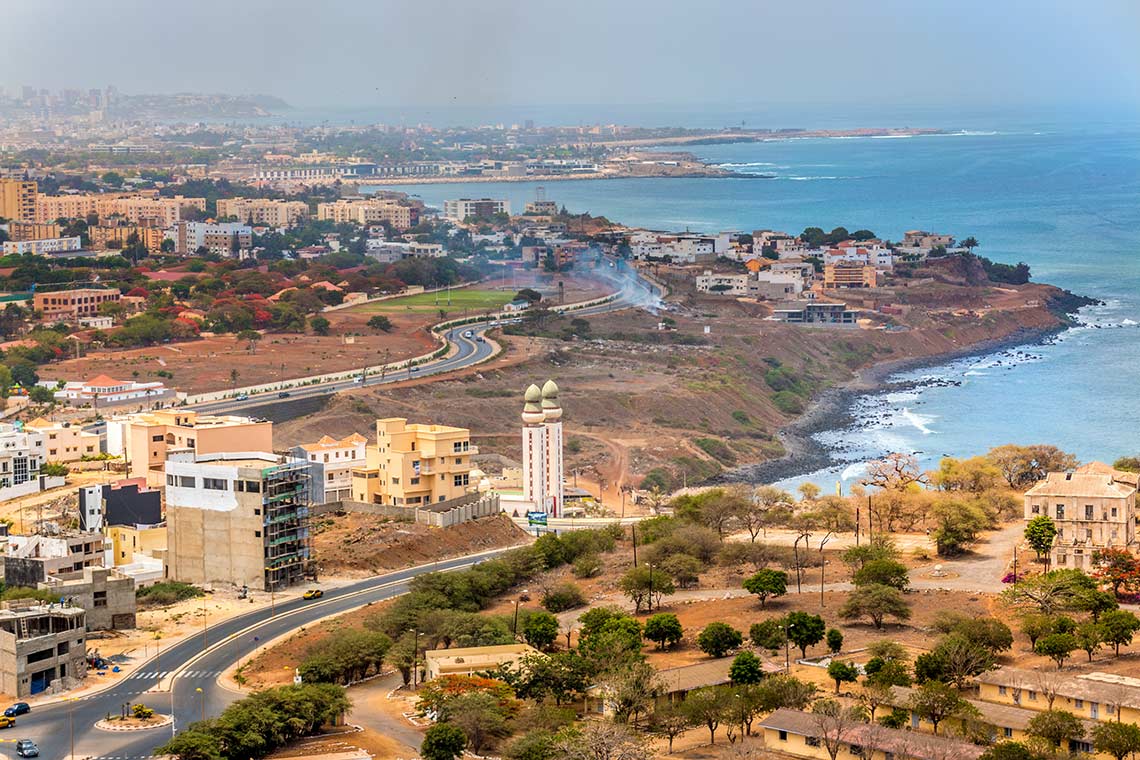Market Research in Senegal

The Gambia partially surrounds the West African Republic of Senegal on the north, south, and west. Guinea and Guinea-Bissau lie south of Senegal, and Mali is on the east border. The official language of Senegal is French.
Key Industries
Senegal’s key industries include agriculture, manufacturing, food and beverage, textile, construction, and materials. Other important industries include the chemical, energy, mining, and hydrocarbon fields.
The agricultural sector is the most important industry. Apart from it being critical to the survival of much of the populace, it is also responsible for the majority of Senegal’s foreign capital. It also contributes to a large part of the GDP and employs around one-third of the workforce.
The industrial sector is also a heavy contributor to GDP and employs much of the workforce. It involves the processing of agricultural produce, e.g., peanut oil and seafood packaging.
The service sector, including the growing telecommunications and tourism industries, is also crucial.
Neighborhoods in Senegal
Dakar
The capital and principal city in Senegal is Dakar (both in population and total land area). Dakar is a strategic departure point for European trade. It offers attractions such as mosques, markets, the IFAN museum, and Goree Island.
Touba
Touba is in central Senegal and, at the present time, is the second-largest city by population. The Muslims in Touba make an annual pilgrimage known as Grand Magai, with millions of local and foreign participants every year.
Rufisque
Rufisque is a town and minor port east of Dakar, a frequented transport hub on the Dakar-Niger and Dakar-Saint -Louis railways. It has a light industry, with oil, lime, and cement works. In addition, the town has many markets and an artisan village with beautiful beaches.
Trends
While Senegal is a growing economy, the recent pandemic has affected its survival. There has been a decrease in the tourism and service sector of the economy on account of COVID-19. Senegal expects the economy to recover sooner or later by private consumption and investment.
The Senegalese Government plans to eventually use the untapped agricultural potential of the country. This move should, in effect, increase food security and boost nutrition within the population.
Benefits and Strengths of the Market
The agricultural sector is Senegal’s pride and joy, and the country ranks as one of the largest peanut producers in the world. Moreover, it has rich mineral soil and an excellent climate. Another key point is that the Senegal market is penetrable and businesses can reap tremendous profits.
Consumer Base in Senegal
Senegal has a growing economy. However, this economic growth has not made jobs for the youths possible. The literacy level is still at an all-time low. The majority of the population is either unemployed or working jobs at minimum wage. Sadly, these factors don’t constitute a strong consumer market among the Senegalese people.
Reasons to Grow Your Business in Senegal
Senegal is a country with many influences. Any investor, regardless of origin, can surely prosper in Senegal. Because it is a liberal country, support from the authorities and politicians is never lacking. Furthermore, it serves as an essential gateway to significant export markets in Europe, Asia, and the Americas.
About Market Research in Senegal
When venturing into any new market, it is essential to carry out Quantitative, Qualitative, and Strategy research. In addition, interactions with the consumers provide a deeper understanding of the market. It can also help your business to gain potential partners.
Market Research can also involve Focus Groups, Interviews, and Surveys. Each of these methods has its merits, and put together, they can make your business a stronger player in the Senegalese market.

